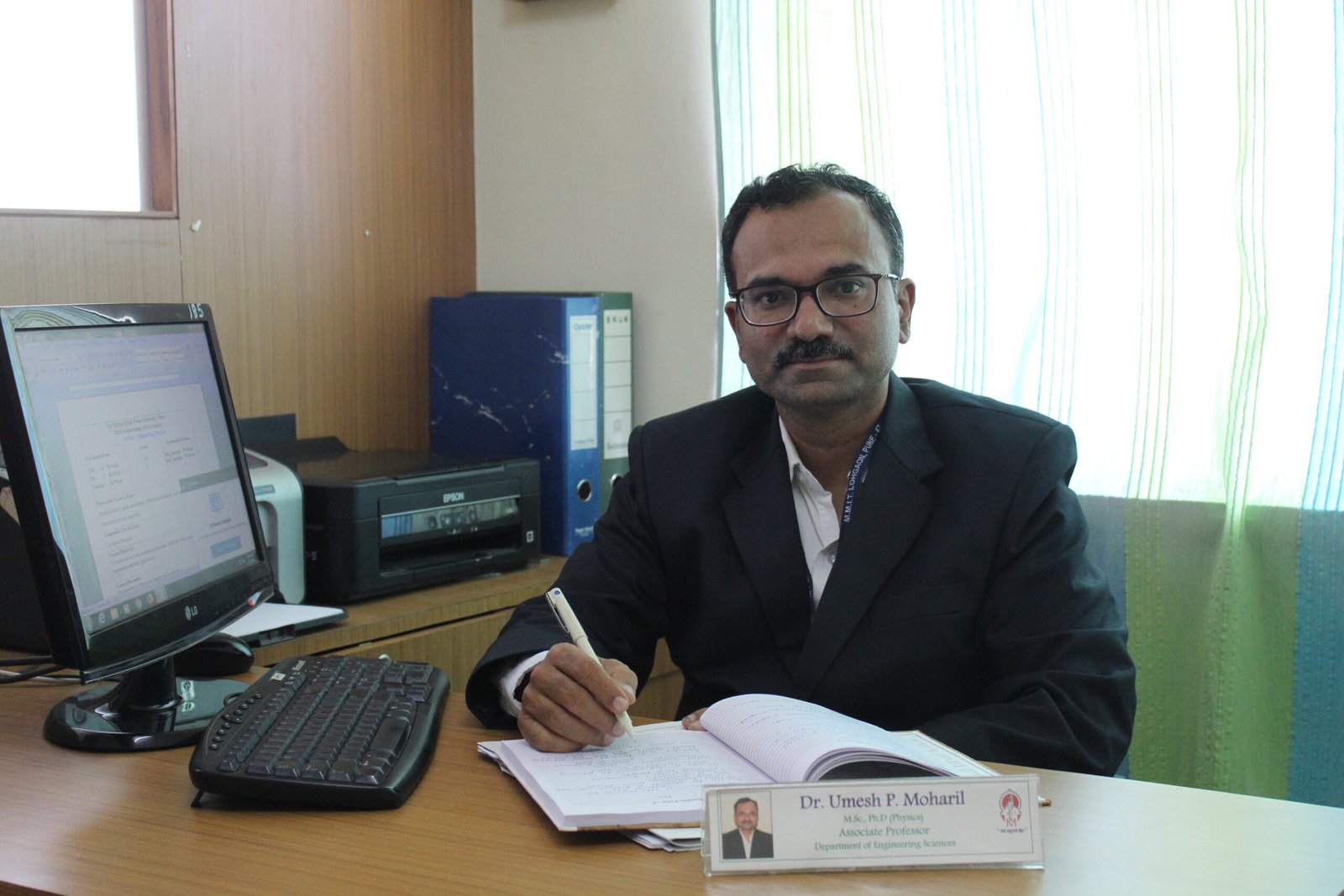About
Home » Engineering Sciences

Dr. Umesh P. Moharil
Head of the Department Engineering Science
The Department of Engineering Sciences was established in 2008. The sanctioned intake is 510 with six branches Mechanical, Civil, Computer, AI&DS, Mechatronics, Robotics and AI. The department provides a comprehensive academic grounding for aspirant engineers, encompassing foundational sciences such as Mathematics, Physics, and Chemistry, alongside essential subjects from key engineering disciplines.
Furthermore, following the guidelines of NEP-2020, students are encouraged for the development of innovative and creative thinking skills for practical engineering applications and professional communication skills.Department inculcates a sense of social responsibility by providing exposure to various social activities.
PROMINENT FEATURES:
- Experienced, proficient, enthusiastic, qualified and committed faculties.
- Well equipped laboratories and necessary infrastructural facilities.
- Platform for participation in co-curricular and extra curricular activities.
- Emphasize on eLearning - Video lectures, Virtual Lab nodal center from IIT Bombay, Virtual learning platform through ERP and Google workspace.
- Effective Guardian Faculty Member (GFM) scheme for a batch of students. Faculty acts as a guardian, mentor and counselor.
- Support and guidance through professional counselor.
- Interaction with parents and Parent-Teacher meetings at regular intervals.
- Physical Education, indoor and outdoor sports activities.Physical Education, indoor and outdoor sports activities.Physical Education, indoor and outdoor sports activities.
VISION
Nurturing aspirant engineers by inculcating the knowledge of science, engineering and moral values
MISSION
The mission of the department is to strive for
S – Student Success
C – Critical thinking
I – Inspire learning
E – Enriching knowledge
N – Noble attitude
C – Continual improvement
E – Encouragement by parenting
PROGRAM OUTCOMES
 Loading…
Loading…
Program Outcomes
-
Apply the knowledge of mathematics, science, engineering fundamentals, and engineering specialization to the solution of complex engineering problems. -
Identify, formulate, review research literature and analyze complex engineering problems researching substantiated conclusions using first principals of mathematics, natural science, and engineering sciences. -
Design solution for complex engineering problems and design system components or processes that meet the specified needs with appropriate consideration for the public health and safety, and the cultural, societal, and environmental considerations. -
Use research-based knowledge and research methods including design of experiments, analysis and interpretation of data and synthesis of the information to provide valid conclusions. -
Create, select and apply appropriate techniques, resources, and modern engineering and IT tools including prediction and modeling to complex engineering activities with an understanding of the limitation. -
Apply reasoning informed by the contextual knowledge to assess societal, health, safety, legal and cultural issues and the consequent responsibilities relevant to the professional engineering practice. -
Understand the impact of professional engineering solutions in societal and environmental contexts, and demonstrate the knowledge of, and need for sustainable development.
-
Apply ethical principles and commit to professional ethics and responsibilities and norms of engineering practice.
- Function effectively as an individual and as a member or leader in diverse teams, and in multidisciplinary settings.
-
Communicate effectively on complex engineering activities with the engineering community and with society at large, as such, being able to comprehend and write effective reports and design documentation, make effective presentations, and give and receive clear instructions -
Demonstrate knowledge and understanding of the engineering and management principals and apply these to one’s own work, as member and leader in team, to manage projects and in multidisciplinary environment. -
Recognize the need for and have the preparation and ability to engage in independent and life-long learning in the broadest context of technological change
